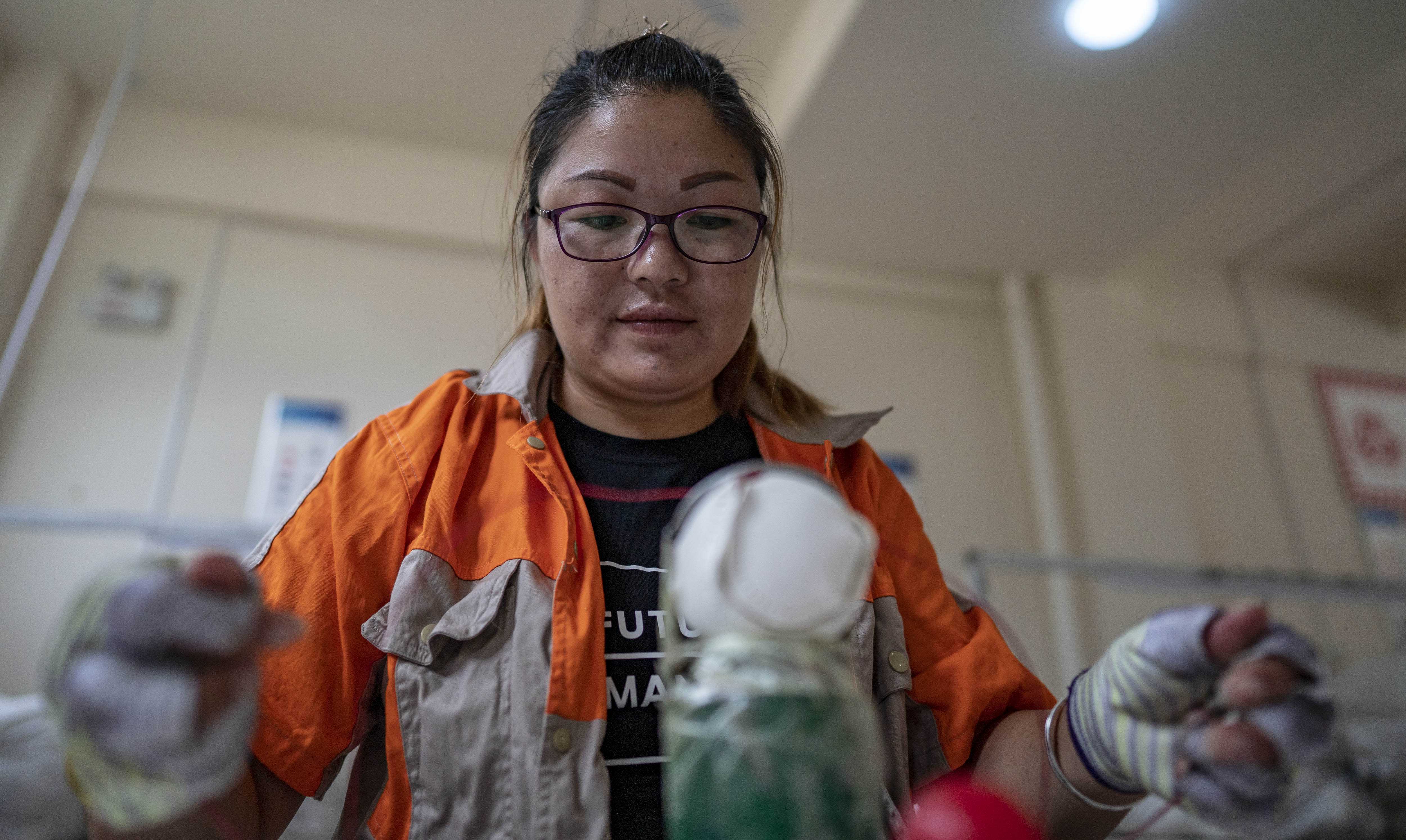Can you believe that a baseball used in a thrilling game may have traveled thousands of miles from a mountain village in the canyon area of Nujiang River originating from the Qinghai-Tibet Plateau?
Baseballs, a foreign object to the residents of Tuoping Village, southwest China's Yunnan Province, have now become a ready source of money with the first batch of 15,000 baseballs ready to be sold to the eastern region this September.

A woman makes a baseball at a workshop of a relocation site in Fugong County of Lisu Autonomous Prefecture of Nujiang, southwest China's Yunnan Province, Sept. 17, 2019. Based on the local situation, Lisu Autonomous Prefecture of Nujiang has established various workshops at relocation sites to shake off poverty. At present, a total of 31 workshops have been put into use in the prefecture, offering job opportunities to about 1,000 local residents. (Xinhua/Jiang Wenyao)
Hua Liumei, 28, is a quality inspector of a baseball workshop in the village. The bustling workshop where her colleagues are dexterously sewing baseballs reminds her of the past days when extreme poverty haunted the village.
In the far-off area of the Nujiang Grand Canyon, a spectacular sight known for its precipitous and mysterious landform, 125 out of 167 households were trapped in poverty before they were relocated.
For as long as anyone can remember, the river was a blockade for residents to leave the village. A zipline used to be the only method to cross the river before 2008.
The harsh natural condition is just a small part of enduring poverty here. To fulfill the mission of eradicating absolute poverty by 2020, China has been helping impoverished people move from mountainous regions to resettle in places with better natural environments and living conditions.
But the mindset of the villagers made the anti-poverty campaign harder than thought.
"Villagers were unwilling to move out of the canyon as they had gotten used to eking out a living by planting some crops on this infertile land," according to He Jiancai, party secretary of the village.
"As they had lived in the adobe houses for generations, an acute nostalgia for their hometown and uncertainty about outside life were also among a number of factors behind their hesitation," said He.
The anti-poverty workgroup rushed to every household, convincing locals of the better life across the river and leading them to visit the houses newly built by local government, which aimed to give them a peek into the future.
The new houses were equipped with a variety of furnishings, and related supporting facilities like public squares, hospitals and kindergartens were also in place. At the end of last year, all impoverished households moved into new residences.
The local government also set up poverty-alleviation workshops to ensure a steady source of income for villagers, calling for the internal impetus of the locals to lift themselves out of poverty.
The newly-developed industries have provided a total of 302 villagers with job opportunities, with 56 employed in anti-poverty workshops doing jobs like baseball sewing and bamboo weaving, according to authoritative statistics.
"It was rather unrealistic to imagine a life like this down the mountain," said A Huamei, who now earns more than 2,000 yuan (280 U.S. dollars) a month. She feels proud that the baseballs she makes are used in baseball games.
By the end of this year, a suspension bridge that is now under construction will be open to traffic, which will push the once secluded village to open wider to the outside world.
"Our village will also apply to be removed from the list of poor villages this year," said He.

